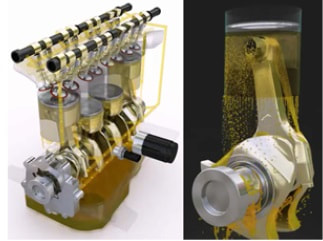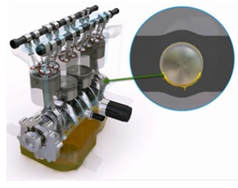Engine Oil System
|
|
What does engine oil do?
Engine oil lubricates and cools the moving components of your engine. Vehicle manufacturers specify exactly which oil should be used in each engine, with the specification defining the type and viscosity of the oil, as well as the additives required for protecting gaskets, and preventing corrosion. When a cold engine is started, there's a short period where there is no oil barrier between moving parts, resulting in tiny amounts of wear. Each time fuel is burned in the cylinder a small amount of the combustion gas leaks past the piston rings into the crankcase. The crankcase ventilation system sucks the gases back into the intake to be burned again, but when the engine is cold or when there is high moisture content in the air, the recycled gases create acid that sticks to the cylinder walls and mixes with the engine oil. The resulting acidic mixture is neutralised by the engine oil additives, but when the additives are depleted, the oil must be replaced. Short journeys where the engine does not heat up completely cause the oil to age much more quickly. Results of failure When the engine oil additives are depleted, sludge deposits can form in oil passages. Sludge deposits in internal oil passages reduce lubrication and can cause severe engine damage. Required Service or Repairs The engine oil and filter should be replaced at manufacturer recommended intervals. These intervals may be time or distance based, or may be calculated by your vehicle computer based on driving conditions and journey length. |


